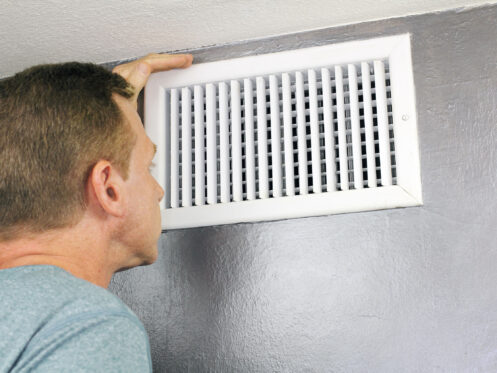Good indoor air quality is essential for a healthy atmosphere in your home in Hudson. It helps reduce allergens and pollutants from the air, making it easier to breathe. During summer, however, indoor air quality can become significantly worse due to seasonal changes. To prevent health issues caused by poor air quality, it’s important to know how to identify when your home has an air quality issue.
1. Unusual Odors
One of the most common causes of unusual odors in your home is from mold and mildew. Mold spores are microscopic, meaning they can easily spread around the house without you knowing it. When conditions become warm and humid, mold spores can rapidly grow and begin to produce a musty odor. This type of smell may also be caused by other air pollutants, such as pet dander or chemical cleaners. Another warning sign of poor indoor air quality is a strange smell that’s coming from the vents. This could be caused by dirty air filters, which should be replaced regularly to keep your air clean and free from odors.
Lastly, strange odors can also be caused by chemical off-gassing. This happens when volatile organic compounds, or VOCs, are released into the air. VOCs can originate from furniture, carpets, paints and other building materials in your home.
2. High Humidity Levels
High humidity levels inside the home cause an uncomfortable atmosphere. This is because moisture in the air can make it difficult to breathe and can also cause a feeling of stuffiness. High humidity levels can also contribute to mold growth, which is one of the common causes of poor indoor air quality during the summer. Another sign of high humidity levels is condensation on windows or walls. This can also lead to mold growth, which then causes a musty odor. To help reduce humidity levels in the home, you should use a dehumidifier or air conditioner to keep the air dry and comfortable.
3. Excessive Dust
When indoor air quality is poor due to dust, you may notice an excessive amount of dust in your home. This is often caused by air pollutants that have been released into the air and settles on surfaces. Dust can also accumulate in vents or ductwork, making it difficult to circulate fresh air throughout the house. One of the biggest dangers of dust is that it can exacerbate allergies and asthma symptoms. It also makes it difficult to breathe, which can be dangerous for those with respiratory illnesses. To help reduce dust in your home, you should vacuum regularly and use a HEPA filter air purifier or air conditioner.
4. Fatigue and Headaches
What’s the connection between indoor air quality and fatigue or headaches? Poor air quality can have an adverse effect on your health, causing symptoms such as headaches and fatigue. This is due to the presence of pollutants in the air, which can cause inflammation in the lungs and respiratory system. Furthermore, certain airborne chemicals can also cause a headache or make it difficult to concentrate. To reduce these symptoms, you should ensure that your home’s air quality is good by regularly changing the filters in your heating and cooling system, using an air purifier, and ensuring your home is well-ventilated.
5. Skin Dryness
Skin dryness occurs when the air in a home is dry. Firstly, if you’re using a heating system such as a furnace in winter, the dry air could be caused by the lack of humidity in your home. Secondly, if your home is not well-ventilated, pollutants from outside can enter and cause skin irritation. Using a dehumidifier excessively or wrongly, such as leaving it running all the time, can also add to the problem. To help reduce skin dryness and other air quality problems, you should make an effort to increase the humidity in your home and ensure your heating and cooling systems are working properly. Using a good humidifier can help to add moisture back into the air, making it more comfortable.
Poor indoor air quality can be dangerous to your health, especially during summer when temperatures and humidity levels can spike. To help keep your air clean and free from pollutants, it’s important to know the signs that point to a problem with the air quality in your home. If you would like to learn more about how to improve your indoor air quality, Bernard Heating & Cooling can help. We also offer furnace and AC maintenance, installation and repair services as well as air purifiers, humidifiers and mini-splits. Contact us today to learn more.




